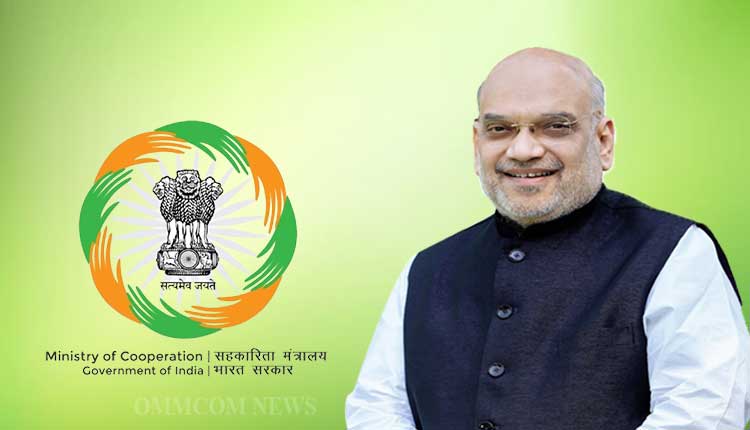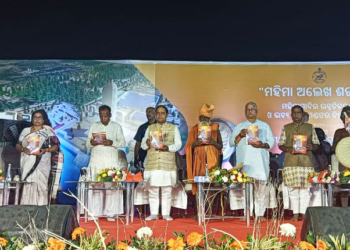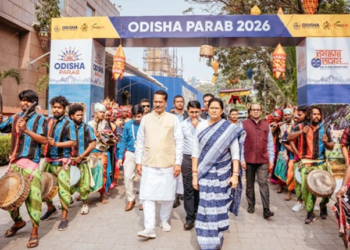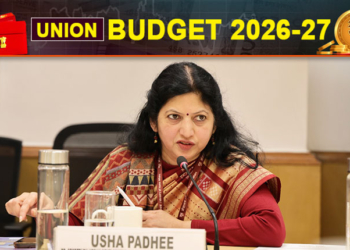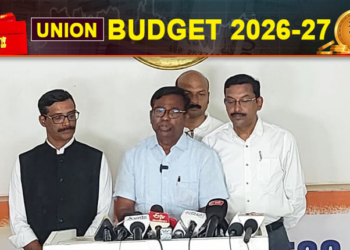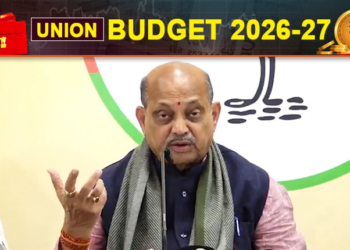Bhubaneswar: A national-level review meeting will be organised to ensure smooth implementation of the three initiatives of the Union Ministry of Coorperation to empower cooperative societies in every village/panchayat across the country with the states and Union Territories in Bhubaneswar and starting the work at the grassroots level at the earliest.
The meeting’s objective is to brainstorm on the successful implementation of the ministry’s 100-day action plan. The meeting will be inaugurated by the Odisha Chief Secretary Manoj Ahuja, and Ashish Bhutani, Secretary (Ministry of Cooperation, Government of India), will be present as the guest of honour.
On the first day of the review meeting, a workshop will be organised to implement these three initiatives at the grassroots level. Under this, two Lakh new MPACS, primary dairy and fisheries cooperative societies will be formed covering all the panchayats in the country. In this workshop, an online presentation will be given by the Joint Secretary of the Ministry of Cooperation, chairpersons of NABARD and NDDB, chief executive of NFDB, Deputy Secretary of the Ministry of Cooperation, CGM and DDM, NABARD (RO).
Further, an online presentation on White Revolution 2.0 will be given by chairperson, NABARD, Chairperson, NDDB, Director, Ministry of Cooperation, and MDs of all state milk federations. The main objective of White Revolution 2.0 is not only to increase milk availability but also to eliminate malnutrition from society. White Revolution 2.0 will also promote women’s empowerment along with natural farming.
The second session of the review meeting will focus on the empowerment of PACS so that rural people can benefit from it as quickly as possible. By strengthening PACS, they have been linked with activities like dairy, fisheries, warehousing, fair price shops, affordable medicine shops, petrol pumps, LPG cylinders, and water distribution. In addition, the PACS formed in each panchayat will work towards strengthening the three-tier cooperative structure. Union Cooperation Minister Amit Shah said that when PACS are strong, their numbers will increase, and district cooperative banks will automatically become strong, and when district cooperative banks become strong, state cooperative banks will also become strong. Suggestions from all states and implementing agencies will be taken in the review meeting regarding this, and an action plan will be prepared.
Brainstorming sessions will also be organised to strengthen cooperation. These sessions will be divided into four parts. Suggestions on bringing the initiatives of the government to the grassroots level and implementing them will be taken from officials of 28 States and four Union Territories. The objective of the brainstorming session is to complete the computerisation of PACS and link them with the National Cooperative Database, and proposed Cooperative Stack. Suggestions will also be taken on how to strengthen PACS by coordinating with various initiatives of the Government of India.
Discussions will be held on the role of National Cooperative Exports Limited (NCEL), National Cooperative Organics Limited (NCOL), Bhartiya Beej Sahakari Samiti Limited (BBSSL), National Agricultural Cooperative Marketing Federation of India (NAFED), and National Cooperative Consumers’ Federation of India Limited (NCCF) in strengthening “Cooperation among Cooperatives”. There will also be detailed discussions on cooperative training and social media outreach.
On the second and final day of the review meeting, the respective panels will give presentations on the outcomes of the brainstorming sessions. Presentations will be made on how to start these initiatives. The review meeting will be concluded by Dr Ashish Kumar Bhutani, Secretary (Ministry of Cooperation, Government of India), emphasising the goal that all these tasks would be completed on time and that rural people as many as possible would benefit from these initiatives.




